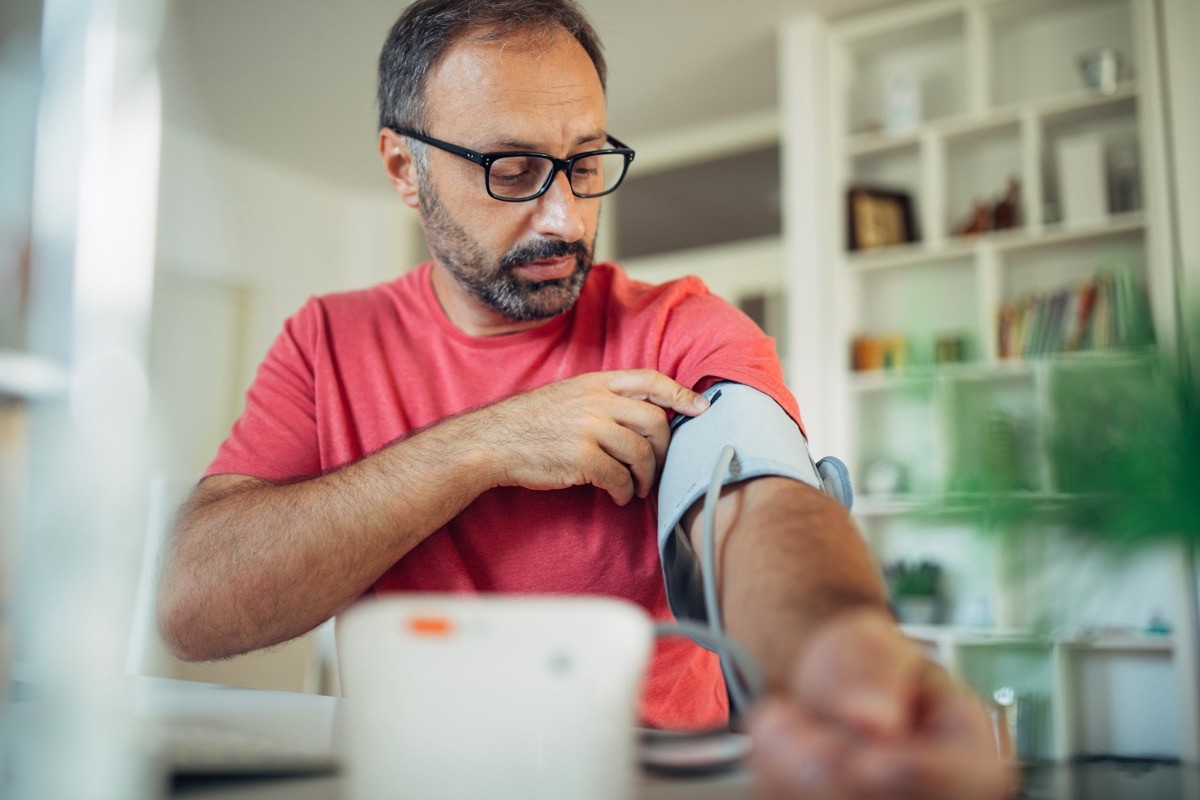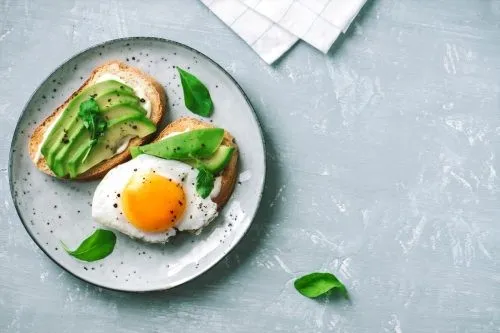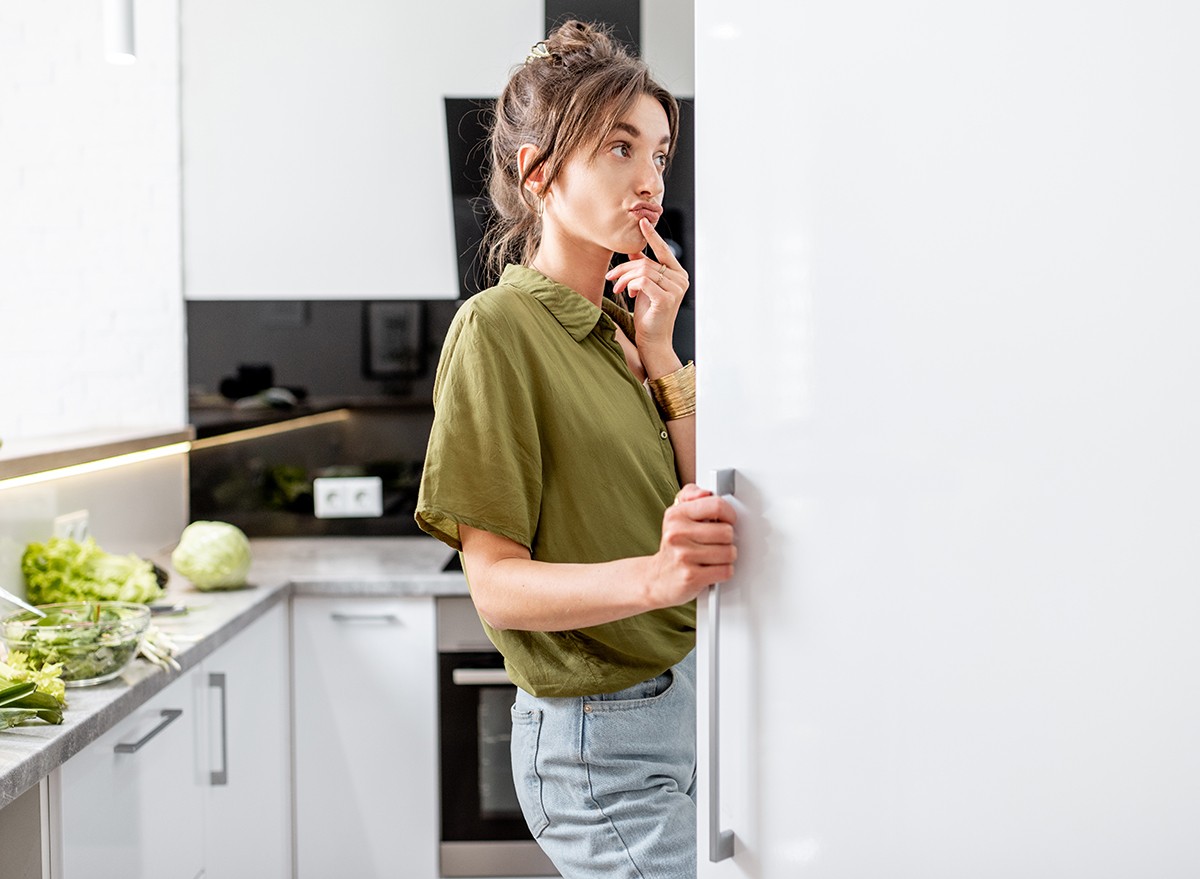I Cut Out Processed Foods for 30 Days and This Is What Happened

Heating up a frozen pizza or ready-to-eat meal is quick and convenient, but your health could pay the price later. Ultra-processed foods are defined by the British Medical Journal (BMJ) as mainly “composed of chemically modified substances extracted from foods, along with additives to enhance taste, texture, appearance, and durability, with minimal to no inclusion of whole foods.”
A recent review published by the BMJ finds that eating more ultra-processed foods is tied to 32 serious health issues, such as type 2 diabetes, heart disease, mental health disorders, and more. In addition, ultra-processed foods are linked to a higher risk of dying.
Ultra-processed foods typically have more than five ingredients and are filled with flavor enhancers and additives to make them tasty so you’ll eat more. They can be highly addicting, and while sweetened breakfast cereals, sugary yogurts, chips, cookies, and other tempting processed foods can be delicious, limiting them or taking a break altogether is healthy.
Best Life spoke with people who cut out processed foods for 30 days, and here’s what happened.
RELATED: These Popular Breakfast Foods Could Be Aging You Faster.
Great Skin

A couple of times a year, Beth Bourgeois, a Public Relations Independent Contractor, stops eating processed food. “I typically do it every January after holiday overindulgences,” she says. She does it to see how eating whole foods affects her health and always experiences positive results. “I’ve done this several years running, and every time I notice how great my skin looks,” she says. In addition, she usually drops a couple of pounds as well, but her husband loses 10-15 pounds. “Men,” she jokes.
Cutting out processed foods can improve your skin because many processed foods contain high levels of sugar, unhealthy fats, and additives that can trigger inflammation in the body. Inflammation is a key factor in skin issues like acne, redness, and dullness.
Certain Symptoms Disappeared

For over a year, Heather Wilson, Motorsports Communications and Marketing Consultant, at High Gear Success, experienced unexplained recurring dizziness and felt like she would pass out. Her doctors offered no advice, and her bloodwork was normal. “I was getting to the point where I felt fearful about committing to anything, as I was unsure how I would feel,” she tells us.
However, after eliminating processed foods from her diet, her health improved. Processed foods often cause rapid spikes and crashes in blood sugar, leading to dizziness and faintness, while additives and preservatives can increase inflammation and bloating. By eliminating these foods, Heather likely stabilized her blood sugar, reduced inflammation, and improved her overall gut health, leading to the resolution of her symptoms. “I didn’t have much faith that anything would work, but I started feeling so much better,” she says. “I was not bloated for the first time in my life – didn’t even know that I was until I cut out the [bad stuff]. I stopped experiencing the dizziness and feeling like I was going to faint. It’s literally gone.”
Better Blood Pressure

Many ultra-processed foods are packed with salt, which can cause blood sugar to skyrocket. When Wilson switched her diet to “primarily chicken and turkey” and cut out processed foods, she felt better and experienced other positive results. She tells us, “I lost nearly 15 pounds (never my intention to lose weight, but an added perk!) My bloodwork came back the best it has in 10 years! My blood pressure went from 137/89 to 101/71 within just a few months!”
Eliminating processed foods can help lower blood pressure because these foods are often high in sodium, which can cause the body to retain water and increase blood volume, putting extra pressure on blood vessel walls. Additionally, processed foods lack essential nutrients like potassium, magnesium, and fiber, which help regulate blood pressure by balancing sodium levels and supporting healthy blood vessel function. By switching to a diet of whole, nutrient-rich foods, you naturally reduce sodium intake and increase vital nutrients, promoting healthier blood pressure levels.
Overall Improved Health

There are many reasons why people quit eating processed foods, and Vickie Petz Kasper, M.D, host of the podcast Healthy Looks Great on You, got a wake-up call. “One Saturday morning I woke up with loss of vision in my left eye,” she explains. “After many tests, it was determined that I had a stroke in my optic nerve.”
She says, “While I was touting the benefits of whole food, I was not following my own advice. Immediately, I cut out everything processed. Within a short period of time, I lost 8 pounds. My weight was in the normal range, but after menopause, I had some belly fat that needed to go. I also had better sleep, digestion, and energy. More importantly, my blood sugar and cholesterol improved.”
RELATED: Ultra-Processed Foods: Impact on Your Body.
Managed Autoimmune Disease

Eating a balanced diet of meats, veggies, nuts, eggs, full-fat dairy, low glycemic fruits like berries, and healthy fats like olive oil and avocado helped Anna Vocino, author of the three best-selling low-carb Eat Happy cookbooks and founder/CEO of clean food company Eat Happy Kitchen improve her health.
“I manage my two autoimmune diseases, weight, and borderline type 2 diabetes blood insulin by avoiding processed food,” she says. As a result, Vocino helps others by creating healthy recipes.
“I’ve helped tens of thousands of people get off of sugar, and the first 14 days are the hardest,” she explains. “I tell people to commit to doing 60 days so that they can really see the difference in their health and palettes after quitting sugar.”
How to Stop Eating Processed Foods

Thinking about quitting processed foods? It isn’t easy at first, but here are a few tips to help quit the bad health habit.
-Avoid temptation by keeping junk food out of the house, says Dr. Kasper
-Eat at home. Wise choices can be made when eating out, but it’s more of a challenge, per Dr. Kasper
-Meal prep. According to Bourgeois, planning and prepping your meals in advance makes a difference
-Track your weight and measurements. Take before and after pics of yourself to gauge changes in those 30 days, says Bourgeois
-Have some snacks or other foods readily available for cravings, Bourgeois recommends. “For instance, because I like to crunch, I often have nuts on hand to satisfy that salty/crunchy craving.”